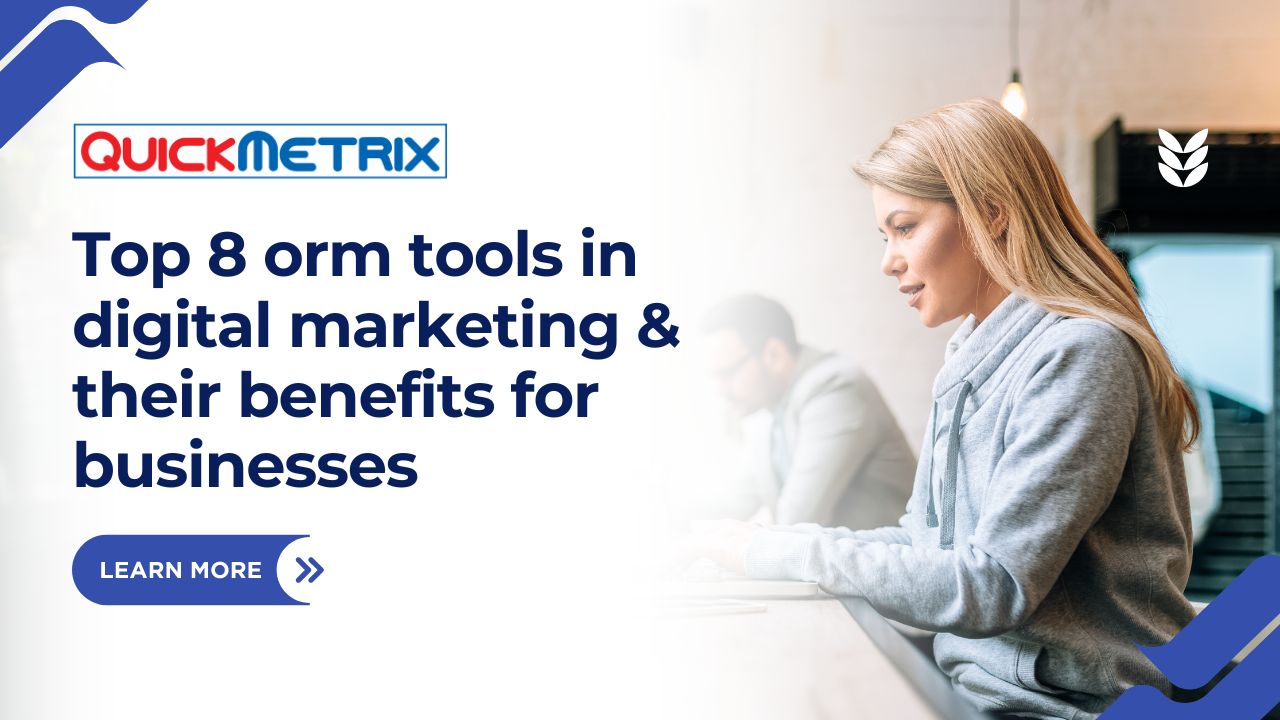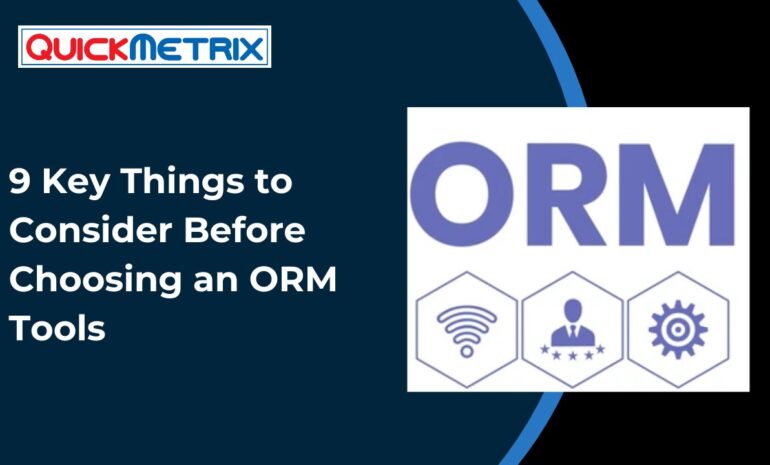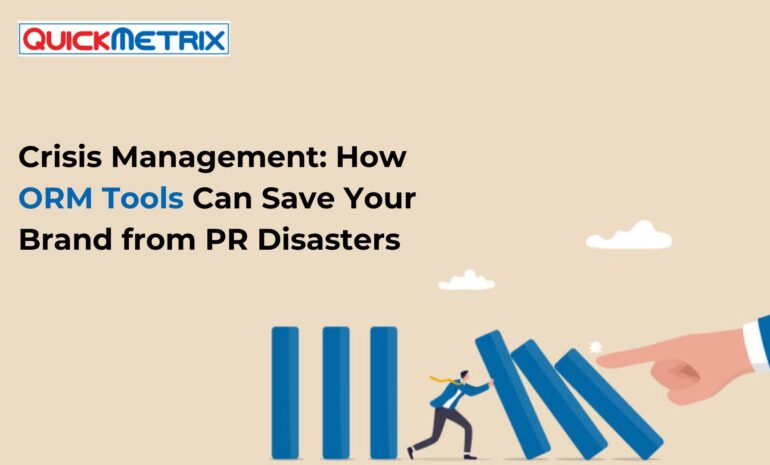Exploring the Top 8 ORM Tools in Digital Marketing and Their Benefits for Businesses
I. Introduction to Online Response Management (ORM)
A. A Definition of Online Response Management
Online Response Management (ORM) is all about how businesses handle their reputation and customer feedback on digital platforms. It involves monitoring, addressing, and influencing public perception through various online channels. In simple terms, ORM helps businesses manage people are saying about them online.
###. Importance of ORM in the Digital Age
In today’s digital landscape, where social media and online reviews can make or break a brand, ORM has become critical. Consumers increasingly rely on online information, and a single negative can significantly impact a business’s reputation. ORM helps businesses stay ahead by proactively managing online image.
C. Overview of the Role ORM Tools Play in Business
ORM assist businesses in monitoring their online presence, gathering insights from customer opinions, and engaging audiences. They provide the necessary resources to online conversations, respond to feedback, and shape perceptions effectively.
II. The Strategic Importance of ORM Tools
A. Maintaining Brand Trust
Trust is vital for any brand, and ORM tools can help nurture that trust by addressing customer concerns promptly and transparently. When customers see that a brand listens and responds to their feedback they are more likely to build a positive relationship.
B. Customer Feedback and Reviews
ORM tools enable businesses to collect customer feedback through reviews social media interactions. This information is invaluable for improving services and products, as it provides direct insights into what customers want.
C. Enhancing Competitive Advantage in the Market
With ORM tools, businesses can monitor competitors and identify gaps in their strategies. By understanding market trends and customer preferences, brands can tailor their offerings and communications to stand out.
III. Detailed Overview of the Top 8 ORM Tools
A. Tool 1: QuickMetrix
1. Key Features
QuickMetrix allows businesses to monitor social media conversations and track brand mentions in real-time. Its intuitive dashboard makes it easy to analyze data and gain valuable insights.
2. Target Audience
Small to medium-sized businesses looking for an affordable yet effective ORM tool.
3. Pricing Structure
QuickMetrix offers a tiered pricing model, starting at $29 per month.
B. Tool 2: Sprout Social
1. Key Features
Sprout Social excels in social media management and analytics. It offers tools for scheduling posts, monitoring brand mentions, and analyzing engagement metrics.
2. Target Audience
Businesses of all sizes that want to enhance their social media strategy.
3. Pricing Structure
Sprout Social starts at $99 per month for its basic package.
C. Tool 3: Meltwater
1. Key Features
Meltwater specializes in media monitoring and provides detailed reports about how the brand is perceived in the media and online.
2. Target Audience
Medium to large businesses with a broader focus on media relations.
3. Pricing Structure
Meltwater’s pricing is customized based on services and business needs.
D. Tool 4: Brandwatch
1. Key Features
Brandwatch offers powerful analytics and social listening capabilities, enabling businesses to understand consumer sentiment and market trends.
2. Target Audience
Large enterprises needing in-depth analysis of brand performance and consumer behavior.
3. Pricing Structure
Brandwatch pricing is typically on a quote basis but can start around $800 per month.
E. Tool 5: Locobuzz
1. Key Features
Locobuzz helps businesses manage online reviews and customer feedback while also offering features for social media management.
2. Target Audience
Brands focused on improving their local presence and customer engagement.
3. Pricing Structure
Pricing starts around $300 per month, depending on the services selected.
F. Tool 6: Brand 24
1. Key Features
Brand 24 provides real-time monitoring of brand mentions across social media, blogs, and other online sources.
2. Target Audience
Small businesses looking for an accessible ORM tool with solid features.
3. Pricing Structure
Plans start at $49 per month, making it budget-friendly.
G. Tool 7: Simplify 360
1. Key Features
Simplify 360 combines social media analytics with reputation management, offering insights into customer sentiment and engagement.
2. Target Audience
Businesses seeking an all-in-one solution for social media and ORM.
3. Pricing Structure
The service begins at around $99 per month.
H. Tool 8: Mention
1. Key Features
Mention is efficient for tracking brand mentions and monitoring competitors in real-time, helping brands respond swiftly.
2. Target Audience
Startups and small businesses needing an easy-to-use ORM tool.
3. Pricing Structure
Mention offers a basic plan starting at $29 per month.
IV. Benefits of Using ORM Tools for Different Types of Businesses
A. Small Businesses
1. Cost-Effectiveness of ORM Tools
Many ORM tools are affordable, making them ideal for small businesses. They can manage their reputation without breaking the bank.
2. Building Local Presence and Trust
ORM tools help small businesses boost their local presence by encouraging positive online reviews and managing community feedback effectively.
3. Managing Limited Resources Efficiently
Using ORM tools allows small businesses to streamline their reputation management, saving time and resources.
B. Medium-Sized Enterprises
1. Enhanced Brand Visibility and Credibility
With ORM tools, medium-sized enterprises can enhance their online visibility, making it easier for customers to find and trust them.
2. Integrating ORM with Marketing Strategies
ORM tools can be integrated with wider marketing efforts to create cohesive brand messaging and strengthen marketing campaigns.
3. Effective Crisis Management
In times of crisis, these tools allow businesses to respond swiftly and manage their public perception proactively.
C. Large Corporations
1. Comprehensive ORM Strategies for Global Presence
Large corporations can develop sophisticated ORM strategies that cater to diverse markets and audiences worldwide.
2. Monitoring Brand Reputation Across Multiple Platforms
ORM tools help these businesses efficiently monitor their reputation across various platforms, ensuring a consistent brand message.
3. Aligning ORM with Corporate Social Responsibility
With ORM, large corporations can communicate their corporate social responsibility initiatives effectively, enhancing their overall reputation.
V. Best Practices for Implementing ORM Tools
A. Setting Clear Objectives for ORM
Before diving into ORM, it’s essential for businesses to outline specific goals. Whether it’s enhancing brand trust or improving customer engagement, clear objectives guide ORM efforts.
B. Regular Monitoring and Assessment
Monitoring should be a continuous process. Regularly assess how your ORM strategies are performing and adjust them as needed for better results.
C. Engaging with Customers Authentically
Genuine engagement with customers fosters positive relationships. Responding to feedback – both positive and negative – helps build trust and loyalty.
VI. Conclusion
A. Summary of Key Takeaways
ORM tools are essential for managing reputation, enhancing brand visibility, and engaging with customers effectively. From small businesses to large corporations, they offer tailored solutions to meet varying needs.
B. The Growing Significance of ORM in Business Strategies
As the digital landscape continues to evolve, ORM will become increasingly important in overall business strategies.
C. Final Thoughts on Choosing the Right ORM Tool
Selecting the right ORM tool depends on your business size, budget, and specific needs. Take the time to evaluate your options, and you’ll be well on your way to managing your online reputation successfully.
VII. Frequently Asked Questions (FAQs)
A. What is the average cost of ORM tools?
The cost of ORM tools can range from $29 to over $800 per month, depending on features and the size of the business.
B. How can I measure the effectiveness of an ORM tool?
You can track metrics like customer engagement, review scores, and overall sentiment analysis over time to measure effectiveness.
C. Are ORM tools suitable for all types of businesses?
Yes, ORM tools can be beneficial for any business, regardless of size or industry.
D. How do ORM tools help in crisis management?
ORM tools provide real-time monitoring and alert businesses to issues, allowing for quick and effective responses to minimize damage.
E. Can ORM tools assist in improving SEO performance?
Yes, by managing online reviews and building a positive brand image, ORM tools can contribute to improved SEO performance.



